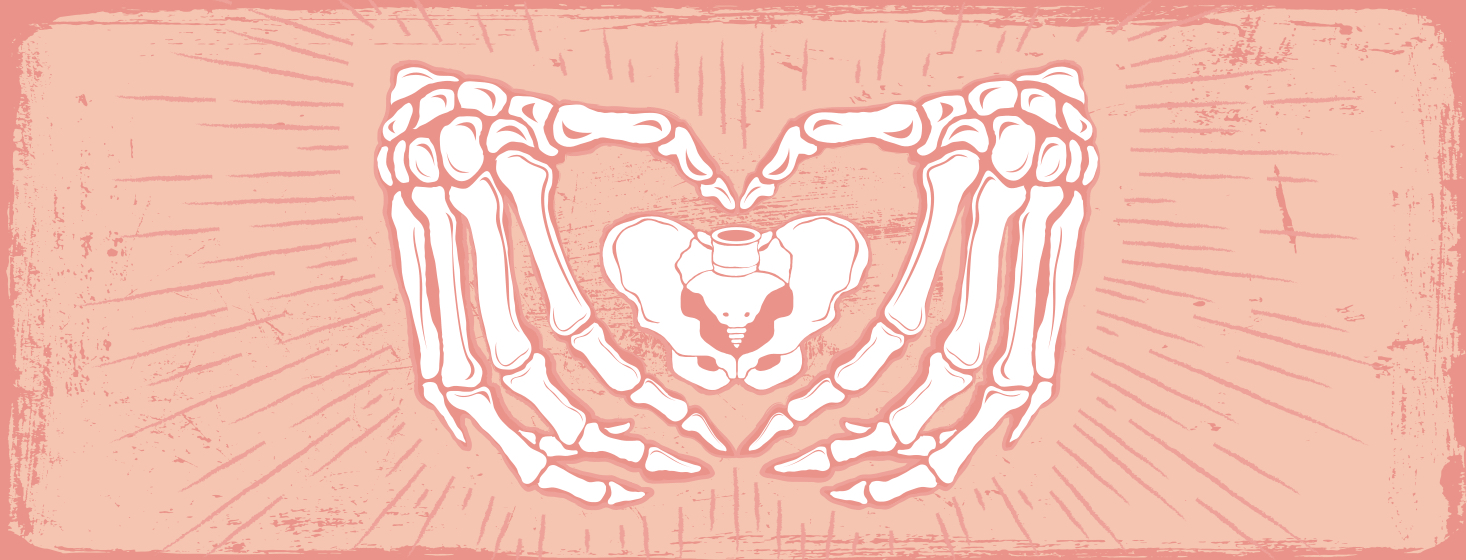Managing Breast Cancer Bone Pain
Reviewed by: HU Medical Review Board | Last reviewed: January 2022 | Last updated: January 2026
Breast cancer can spread beyond the breast and lymph nodes to other areas in the body. This is called metastasis or secondary breast cancer.
The breast cancer cells spread through the blood or lymphatic system. More than 50 percent of women who develop stage IV breast cancer will find cancer has spread to their bones. It most commonly spreads to the following bones:1,2
- Ribs
- Skull
- Vertebrae of the spine
- Pelvis
- Long bones in the arms and legs
When breast cancer cells get into the bone, they can be treated but not cured. The good news is, you can live a long time with breast cancer that has spread to the bones. However, you will want your doctor’s help to manage it.1,2
How metastatic breast cancer hurts your bones
When cancer spreads into your bones, it damages them and causes calcium to go from the bones into the blood. When you have high levels of calcium in your blood, it is known as hypercalcemia. Hypercalcemia can cause problems in your body, such as nausea, vomiting, constipation, or confusion. If calcium levels remain too high for too long, it can stress your kidneys and lead to kidney failure.3,4
Cancer in your bones causes weakness and pain. It can make your bones brittle and more likely to break. You can more easily fracture your legs or hips. That is because the bones in your legs and hips support most of your body weight.3,4
If cancer spreads to your spine, it can damage your vertebrae. This can put pressure on your spinal cord. This is called spinal cord compression, and symptoms include:3
- Back pain
- Numbness in the abdomen or legs
- Weakness
- Inability to control your urine or stool (incontinence)
Spinal cord compression is an emergency. If you have any of the above symptoms, go for medical advice right away or call 911. If left untreated, spinal cord compression can lead to paralysis.3
How to know if breast cancer has spread to your bones
If you are experiencing new pain, it is important to talk to your doctor or another member of your care team. You should also talk to your doctor if you have pain that does not go away or gets worse when you rest or lie down.2,3
Imaging tests are used to detect cancer that has spread to the bones. The tests can also show possible fractures before they happen. If you have hypercalcemia, your doctor may give you fluids to protect your kidneys. Your doctor can also give you drugs to slow down bone loss or strengthen the bone you have. Surgery can be used to support bones before or after they break.2,3,4
What you can do about cancer bone pain
Your care team can help you manage your bone pain and improve your quality of life. You can talk to your doctor and members of your care team about your goals, which may include:
- Strengthening your bones
- Maintaining or improving your mobility
- Reducing or eliminating your pain
- Slowing the cancer’s growth
When you meet with your doctor to decide how you want to treat your cancer or its symptoms, they will consider:2,3,4
- Where in your body the cancer is
- How far the cancer has spread
- The specific symptoms you are having
- What treatments you have already tried
- Your general health
Pain management
Different kinds of pain medicines can be helpful in treating cancer bone pain. These include over-the-counter and prescription pain relievers. It can take time to identify the right type or combination of medicines that work best to relieve your bone pain.3
Pain medicines come in different forms, including pills, patches, and pumps. Your doctor can help you find the right medicine to control your pain while keeping side effects to a minimum.3
Your doctor and care team may also use different treatments for bone pain, such as:
- Bone-building medicines
- Chemotherapy
- Steroids
- Targeted therapy
- Surgery
- Massage therapy
- Exercise
- Mindfulness methods
- Hypnosis
- Psychotherapy
- Palliative care
Future solutions for cancer bone pain
Experts are continuing to develop more treatment options for bone pain. Pain should not be considered a normal part of having cancer. Pain should be treated, and it can often be controlled or relieved with the right treatment.3,4
Support groups offer another approach. Talking with other people who have cancer can give you insight into what you are feeling and offer ways in which others have resolved pain and discomfort.3,4


Join the conversation